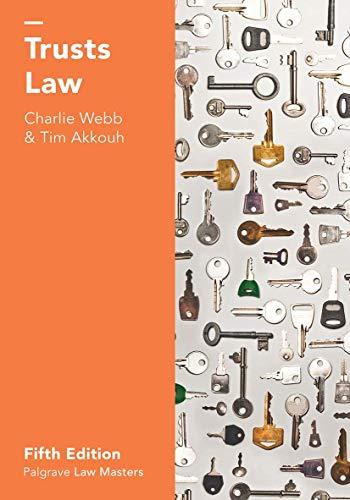Question
Lee works part-time for an accounting firm in Brisbane and is completing the professional requirements to become a certified practising accountant (CPA). She recently attended
Lee works part-time for an accounting firm in Brisbane and is completing the professional requirements to become a certified practising accountant (CPA). She recently attended a conference and, after speaking with some small business owners, realised that there is a demand for low-cost, online bookkeeping services in her area. Keen to make some extra money, Lee decided that based on some previous experience she has had in bookkeeping, to launch an online business called 'Numerical Navigators.' To stand out from other competitors in the field, she has adopted the slogan: Brisbane's Best Option for your Book-keeping Needs Certified Results! This slogan appears on all of Lee's official communication and website as well as on the 'Numerical Navigators' website and a Facebook page Lee has set up. Additionally, the website and Facebook page also list Lee's credentials as 1) Bachelor of Business (Accounting) degree and 2) 'six years of experience working for an accounting firm in various roles.' She does not mention her CPA studies. Lee's friends, keen to help her, post many favourable testimonials about the quality of her work and rate her business as 'five stars' on Facebook - even though they are not actually her customers. Lee is aware of what her friends have done but decides to leave the testimonials on the Numerical Navigators' Facebook page until she has more clients as she thinks it makes her business look more successful and professional. One of Lee's key clients is a local concreting company owned by Tao. Although Lee has only been working with Tao for six months, Tao is very happy with Lee's bookkeeping and payroll work. Two months ago, Tao sent Lee an email asking for advice about his business with the hope of minimising his tax requirements. Lee doesn't have much experience with tax, but she really wanted to keep Tao as her client, so she researched his issue and sent an email back explaining potential options to him. Tao followed the advice in Lee's email. Unfortunately, even though Lee thoroughly researched Tao's question, she failed to identify that Tao's business is set up through a family trust. This means the advice Lee gave Tao was incorrect. Tao has just received a large tax bill, including penalties, from the Australian Taxation Office. He is very upset and telephoned Lee to tell her that he is going to see his lawyer and sue her for negligence because 'CPAs should give proper advice!'
Task - Problem Solving Questions In setting up her business, or through her online presence, has Lee breached any provisions of Schedule 2 of the Competition and Consumer Act 2010 (Cth) (also known as the Australian Consumer Law)? Why (or why not) might she be liable under the legislation?
Step by Step Solution
There are 3 Steps involved in it
Step: 1

Get Instant Access to Expert-Tailored Solutions
See step-by-step solutions with expert insights and AI powered tools for academic success
Step: 2

Step: 3

Ace Your Homework with AI
Get the answers you need in no time with our AI-driven, step-by-step assistance
Get Started


